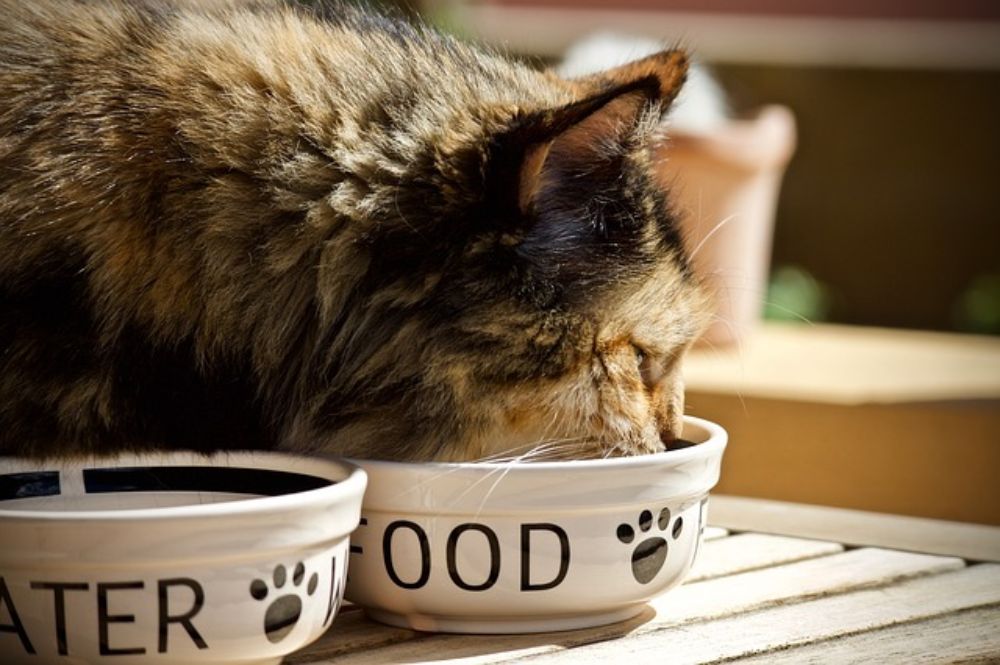First off, here’s a definite fact: cow’s milk is very good for baby cows. But as for the idea of putting out a saucer of milk as a treat for your cat; as we’ll see, that’s firmly within myth territory...
If they’ve got any sense (and let’s face it; most of them have), a cat would take one sniff of a saucer of semi-skimmed and walk away. Milk-wise, cats are designed to drink mum’s own - and that’s only for a few weeks or so.
Fact: cats can’t handle cow’s milk. So best to keep it well out of paw’s reach.
But what about the whole “cat who got the cream” thing? Surely they need calcium? What should they be drinking if milk is off the menu?

What’s the Deal with Cats and Milk?
To be able to stomach milk, you have to be able to digest lactose, the type of sugar found mainly in milk and other dairy products. To do this, you need an enzyme, lactase, which is produced by cells in the small intestine lining.
Among us humans, around 65%, due to what’s called lactase non persistence. This basically means that once we’ve come off baby milk, we stop producing lactase (either partially or completely), so we lose the ability to tolerate milk.
Here’s the thing about cats: almost without exception, they all go through lactase non persistence. In other words, shortly after they are weaned, the lactase disappears from their gut.
They no longer have the toolkit to handle the white stuff…
Would a Cat Willingly Drink Milk?
If you placed a saucer of skimmed or semi-skimmed milk in front of them, they’d likely view it as more a curiosity than a treat.
Full fat milk and cream are a different story. Due to the high fat content, they’ll probably gulp it down without knowing that it’s likely to disagree with them later! It's a good idea to steer clear and have your cat stick to eating solid foods instead.
What Happens When a Cat Drinks Milk?
Because there’s nothing in a cat’s gut to break down the sugar in the milk, that lactose just sits in the gut for a while until it starts to ferment - cats can't digest milk! While Disney films make it seem like cats love milk, the majority of cats are actually lactose intolerant. So if you do give your furry friend a milky treat, that’s where the troubles start…
An hour or so after drinking it, the cat is likely to feel bloated, and there’s likely to be flatulence and diarrhoea. This might last a few hours (until the lactose is finally out of the system). The more milk your cat has drank, the worse the symptoms and the longer they last.
Some people see no harm in giving a tiny amount of cream or full fat milk to their cat as a treat. It’s true that a very small quantity of milk is unlikely to cause much of a reaction. But then again; cats don’t need this. And by reinforcing the idea of dairy as a treat, you increase the likelihood of them helping themselves to a bigger portion which almost certainly would lead to an upset tummy.
What About Calcium?
Just like us, a cat’s diet requires a regular supply of calcium for healthy bones and teeth. But as any vegan will testify, dairy isn’t the only source of calcium.
It’s one of the reasons why it’s so important to feed your cat with a good quality, nutritionally complete cat food. It’ll have all the calcium they need (along with everything else).
What Should My Cat Be Drinking?
For most cats, the answer couldn’t be simpler: make sure they have a regular supply of fresh, clean water. Only thing is, many domestic cats seem to have lost that in-built instinct to keep up their water balance.
In other words, they don’t realise when they aren’t drinking enough of it. With some cats, this can be a big problem; especially where it stops the kidneys from working properly. Where the vet thinks a cat isn’t drinking enough, they’ll recommend that you switch to a wet diet.
In some cases though, if a cat still ignores the water bowl, but will go for a more “interesting” alternative, the vet might recommend lactose reduced cow’s milk. With this, the lactose has been removed, so it shouldn’t disagree with them. It can be a useful way of getting the fluids they need into your buddy!
Can My Kitten Drink Cow’s Milk?
Ideally, kittens should stay with mum for the first eight weeks, where they get all the nutrients they need from maternal milk.
It’s rare, but kittens sometimes have to be removed before they’re properly weaned. Usually, a tiny kitten like this would be able to tolerate cow’s milk, because they’ve still got the lactase enzyme. But cow’s milk doesn’t give them everything they need at this stage. Instead, your vet will advise you on different types of milk, or a cat-specific formula.
Everypaw Cat Insurance
Everypaw's Cat Insurance comes with 24/7 unlimited access to vets and vet nurses that can help with your pet's health, care, nutrition and behaviour. So you can rest assured your kitty will be well looked after.